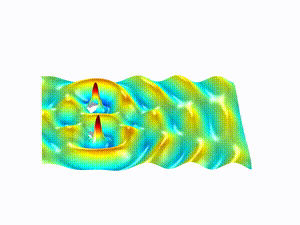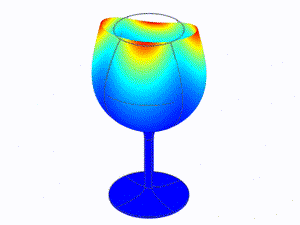| Lecturer (assistant) | |
|---|---|
| Language of instruction | German |
| Dates | See TUMonline |
Content

Based on the knowledge on dynamics acquired during the undergraduate studies, the fundamental principles of sound generation and propagation are taught in this module. Besides practical aspects such as the perception of sound and the description of well-known wave phenomena (e.g. interference, diffraction), this mainly includes the underlying theory of wave propagation.
The main focus is set on air-borne sound – i.e. acoustics. However, structure-borne sound in elastic media (e.g. bending waves) is also considered. Concepts for solving the wave equation as well as the characterization of sources are discussed.
Finally, the interaction between acoustics and the vibration of elastic structures is studied – a phenomenon that nowadays receives growing attention in view of ever-increasing lightweight requirements.

- ... explain important principles of acoustic phenomena and how they emerge
- ... analyze sources of sound as well as how they are perceived
- ... become involved in the engineering field of „Noise, Vibration, Harshness“ (NVH)
- ... carry on with learning the principles of low-noise design
- ... understand the underlying principles of acoustic simulations and experiments
Organizational Matters
Lecture:
- 2 SWH per appointment
- Lecture content is presented with the aid of presentation slides and additional digital media
Exercise:
- 1 SWH per appointment (held every other week)
- Main content of the lecture is recapped in terms of presentation slides
- Students will work individually on assignments, to which the solution will be provided by the at the end of the appointment
Examination:
- Depending on the number of participants, the examination will be held as an oral exam (duration: approx. 20 minutes) or a written exam (duration: 90 minutes).